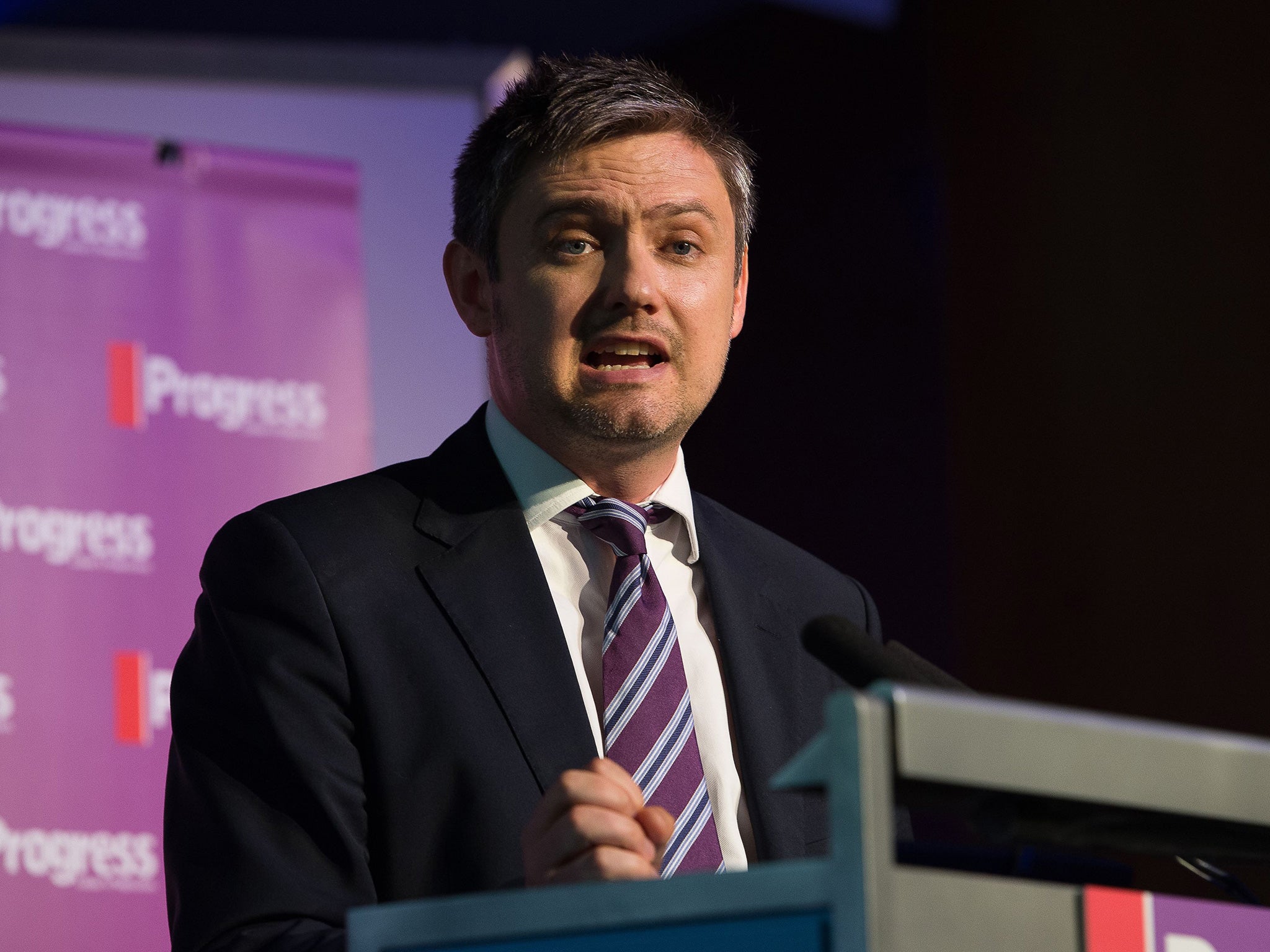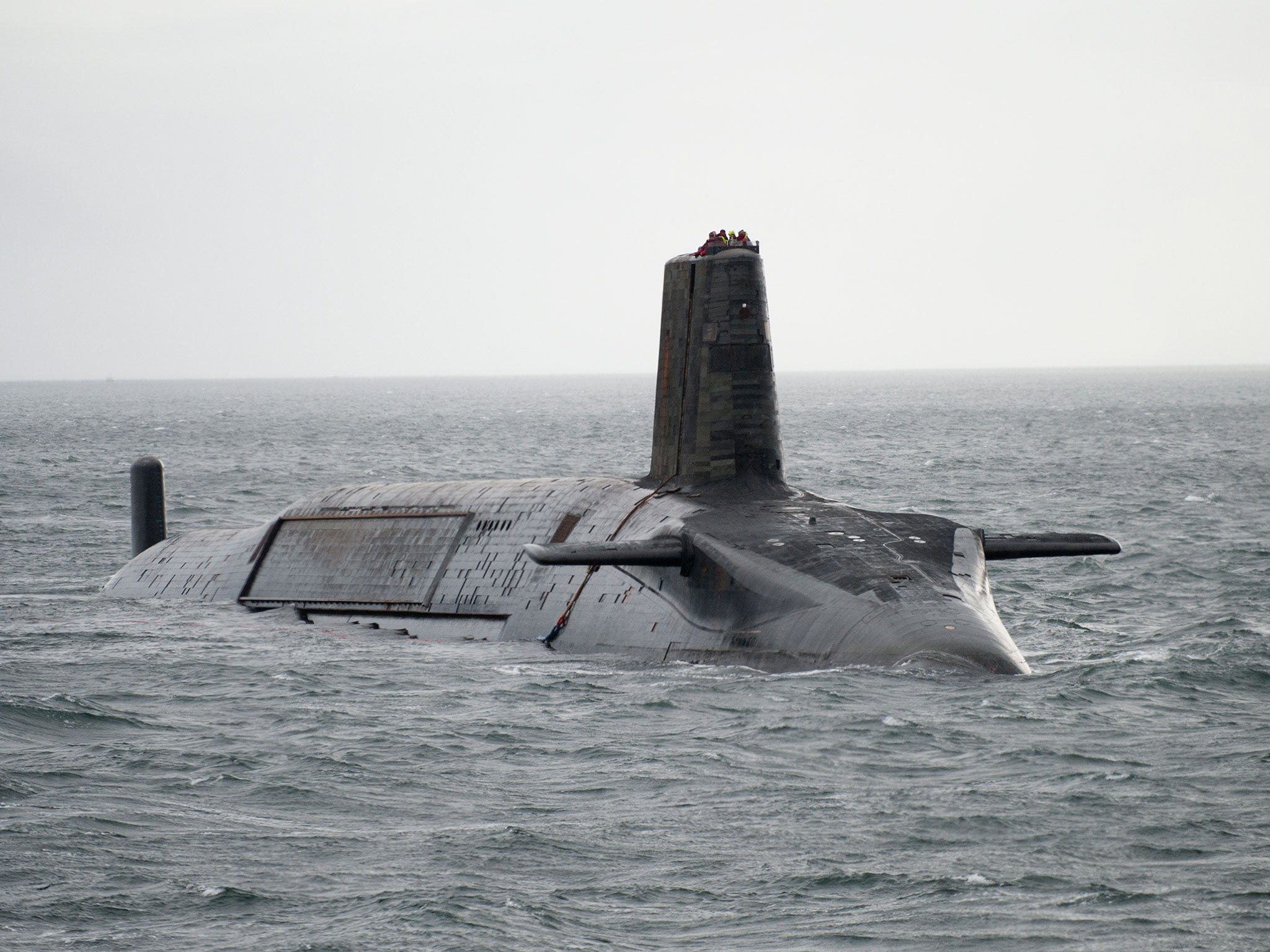Your support helps us to tell the story
From reproductive rights to climate change to Big Tech, The Independent is on the ground when the story is developing. Whether it's investigating the financials of Elon Musk's pro-Trump PAC or producing our latest documentary, 'The A Word', which shines a light on the American women fighting for reproductive rights, we know how important it is to parse out the facts from the messaging.
At such a critical moment in US history, we need reporters on the ground. Your donation allows us to keep sending journalists to speak to both sides of the story.
The Independent is trusted by Americans across the entire political spectrum. And unlike many other quality news outlets, we choose not to lock Americans out of our reporting and analysis with paywalls. We believe quality journalism should be available to everyone, paid for by those who can afford it.
Your support makes all the difference.The total cost of replacing the Trident nuclear weapons system will come to at least £205 billion – significantly higher than previous estimates, campaigners say.
Figures put together from collected ministerial statements by the Campaign for Nuclear Disarmament include costs such as decommissioning nuclear components, contingency funds, and the cost of warheads.
Estimates of the cost of the weapons system vary wildly. The independent Trident Commission estimated in 2014 that the system would have a lifetime cost of around £100 billion.
Last year an estimate published by Reuters and derived from figures obtained by Conservative Foreign Affairs Committee chair Crispin Blunt put the cost of the system at £167 billion.
Ministers believe the cost of four new submarines would be £31 billion but have been reticent to put an exact figure on the full lifetime cost of the system.
Kate Hudson, CND general secretary, said: “These new calculations, drawn from actual government figures, show that the bill has spiralled beyond all expectations.”
Caroline Lucas, the Green Party MP who chairs CND’s parliamentary group, said replacing the weapons system was “neither necessary nor sensible”.

“The eye watering cost of replacing this cold war relic now stands at up to £205bn. Not only is this a colossal waste of resources but I fear that ploughing these huge sums of money into Trident will make us less safe, not more.
“Nuclear missiles have the potential to cause devastation and death on an unimaginable scale, but they do nothing to hinder lone gunmen or extremists. Their very presence in Britain – and the transport of nuclear warheads on our roads – presents not only a target for terrorism but a continued risk of accidents linked to human error or technical failure.
“Replacing Trident is neither necessary nor sensible. The evidence – provided by senior ex-military figures among others - is stacked against spending billions of pounds on these exceptionally dangerous weapons.

“Parliament will soon choose whether to join the vast majority of nuclear-free nations by moving on from Trident. MPs should be thinking long and hard about whether they want to commit the UK to spending up to £205bn on this weapons system. When the vote comes I hope that a majority will join me in voting against Trident renewal.”
Labour MP John Woodcock, a long-time defender of Trident in whose consituency the replacement submarines would be built, said the figures were misleading and that it was wrong to include associated costs in the estimate.
“The Campaign for Nuclear Disarmament has created a major industry churning out ever more fanciful figures about the programme to replace the UK's nuclear submarines," he said.

“No other public project is calculated in remotely the same misleading way - CND's latest punt is the equivalent of inflating the figure for building a new hospital by including the salaries of every doctor, nurse and porter who works in it through its life, the electricity to power its equipment and the cost of literally anything else you could think to chuck in over a 50 year period.
“The truth is that Trident renewal will cost a tiny fraction of the amount we spend on either defence, education or health over the lifetime of the system and will help guard against future insecurity while anchoring in UK communities many thousands of irreplaceable advanced manufacturing jobs."
Parliament is set to vote on whether to renew Trident when the current system comes to the end of its operational life – with the issue likely to reopen deep splits in the Labour party between those in favour of and against the weapons.
In February it was reported that the vote had been delayed until after the European Union referendum, which will take place on 23 June this year.
Labour leader Jeremy Corbyn is opposed to the system – but there have been suggestions that he could offer his party a free vote on the issue.
He caused a row last year when he said he would not use the weapons system because doing so would likely lead to hundreds of thousands of innocent civilians being killed. David Cameron said he would however use the bombs.
Minister for Defence Procurement, Philip Dunne said: "This is more fiction dressed up as fact from known opponents of the strategic deterrent. We do not recognise these figures. We have been clear on the cost estimates published on the Successor submarine. We are replacing the submarines and that cost equates to 20 pence in every £100 of annual government spending. The in-service costs remain unchanged - around 6 per cent of the Annual Defence budget."
Subscribe to Independent Premium to bookmark this article
Want to bookmark your favourite articles and stories to read or reference later? Start your Independent Premium subscription today.

Join our commenting forum
Join thought-provoking conversations, follow other Independent readers and see their replies
Comments